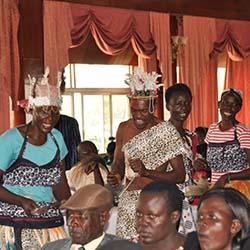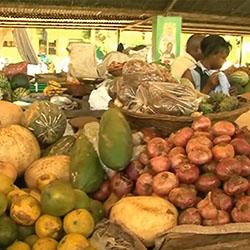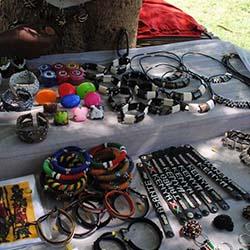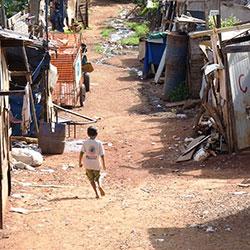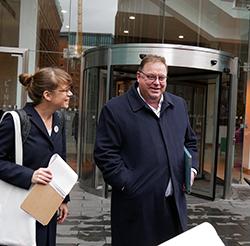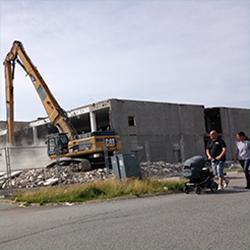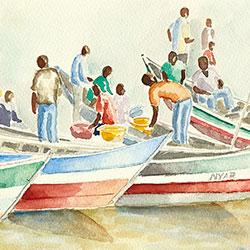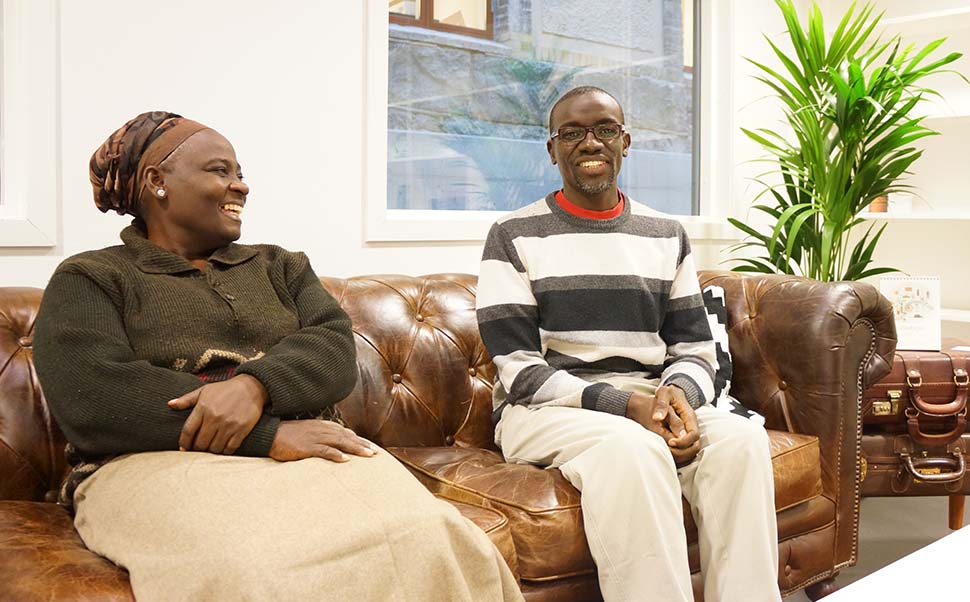
Can a market develop a city?
A city can be seen as a market place, a place for interactions, exchange of goods and service, sales and production. Markets have always played a key role in forming cities around the world. But what role do market places play in ensuring a sustainable development of the city? That is one of the main questions in the Market places project in Kisumu, Kenya.
Two of the PhD students working in the project are Franklin Mwango and Jennifer Otieno from Maseno University. They are working with two different subprojects about waste management systems and women and the market place.
Why are market places important?
Jennifer: Market places are important for the development of the city. They are the answer to a lot of people’s needs, being a place where you can both earn your living as well as a place where you can buy what you need. At informal market places, which are common in Kisumu, women have the possibility to be a part of the economy and even drive it.
Franklin: Sixty percent of Kisumu’s economy is based on informal market places. There are both problems and benefits of having informal markets. One problem is that they are expanding faster than the city planning systems can handle. However, one of the main benefits is that they are adapted to the income level of the people.
How can market places contribute to a sustainable urban development?
Jennifer: For a city like Kisumu market places are extremely important. They drive the economy and from a food security perspective, the market place is vital. Having sufficient supply of food meeting the citizen’s demand is central for development.
Franklin: When it comes to sustainable urban development market places are of course anchored on the economic side, although they are important both for the social and ecological development of the city. It is a meeting place for all citizens and in Kisumu market places have potentials to drive the ecological and social development of the region. If the market places do not develop, the city will not develop.
Tell me a little bit about your project
Jennifer: My focus is on women and how they interact with the market as well as how the market will sustain them financially, now and in the future. I particularly focus on women selling Omena fish. The fish is cheap, it is often available and you can buy it in small quantities. The barriers of entering the market place are therefore lower, compared to other products. It is an easier way of being part of both the economy and the market. There are also a lot of cultural obstacles that women have to overcome; according to tradition they can for example not be a fisherman. Selling the fish is their only option.
Franklin: Renewable energy is my focus and specifically how to turn waste into energy. The idea is to take waste from the market place and transform it into energy that can be used locally in the market. I am focusing both on the structure and system as well as local implementation. Public education is also an essential part of my work.
What do you hope to accomplish?
Jennifer: My dream is to improve the efficiency for these women and to have a market that responds to our needs.
Franklin: A better waste management system in the city through public inspired projects.
Read more about the Market place project
